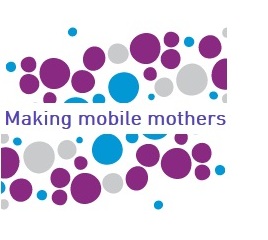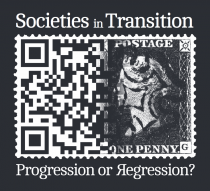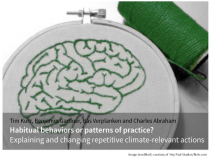- About
- Team
- Projects
- Children and the Environment
- ELiCiT (Exploring lifestyle changes in transition)
- Foundations for Sustainable Living
- HABITs
- Mapping Rebound Effects
- PASSAGE (Prosperity and Sustainability in the Green Economy)
- Policy Dialogue
- Price Responsiveness of Demand in Energy
- Resilience and Sustainable Lifestyles
- Sustainability Transitions in Food Systems
- Sustainable Living in Remote Rural Scotland
- Publications
- News
- Events
Making mobile mothers
Where:
University of Surrey
When:
Mar 29 2012 - 13:00
Seminar, 29 March 2012
Dr Justin Spinney
Sustainable Mobilities Research Group, University of East London
Making mobile mothers: using a social practice approach to studying the changing travel choices of first time parents in two London boroughs
This seminar contributes to the sociology of daily mobility, domestic practice and sustainable consumption by studying changes and continuities in household travel patterns of first-time parents in London (UK). As Button & Nijkamp, (1997) have stated, with changing lifestyles come new modes and patterns of mobility, yet the role of  life-stage and parenting in particular remains underexplored as a ‘moment’ when a new set of material and social practices and significant changes in affective capacities are being introduced/imposed. Addressing these shortcomings, this seminar is based on in-depth interviews, participatory mapping, and travel diaries conducted in 2011/12 with 20 households in the London boroughs of Newham and Hackney prior to and after the birth of a first child. The analysis highlights the way in which expectant parents constantly negotiate normative notions of what constitutes ‘good’ parenting, how they come to ‘do’ and ‘feel’ family and the role of transport within this. In particular the seminar explores the experience of using public transport and how a lack of access and the increased stress of traveling informs attitudes towards other modes of travel such as driving and cycling. The seminar also explores different ways in which an ethics of care relates to notions of appropriate mobility and how this leads to particular forms of transport being favoured over others. Finally, the data also points to cultural, gendered and socioeconomic differences in the ability and willingness of parents to perform what either they or society deem to be appropriate and normative forms of parental mobility.
life-stage and parenting in particular remains underexplored as a ‘moment’ when a new set of material and social practices and significant changes in affective capacities are being introduced/imposed. Addressing these shortcomings, this seminar is based on in-depth interviews, participatory mapping, and travel diaries conducted in 2011/12 with 20 households in the London boroughs of Newham and Hackney prior to and after the birth of a first child. The analysis highlights the way in which expectant parents constantly negotiate normative notions of what constitutes ‘good’ parenting, how they come to ‘do’ and ‘feel’ family and the role of transport within this. In particular the seminar explores the experience of using public transport and how a lack of access and the increased stress of traveling informs attitudes towards other modes of travel such as driving and cycling. The seminar also explores different ways in which an ethics of care relates to notions of appropriate mobility and how this leads to particular forms of transport being favoured over others. Finally, the data also points to cultural, gendered and socioeconomic differences in the ability and willingness of parents to perform what either they or society deem to be appropriate and normative forms of parental mobility.













